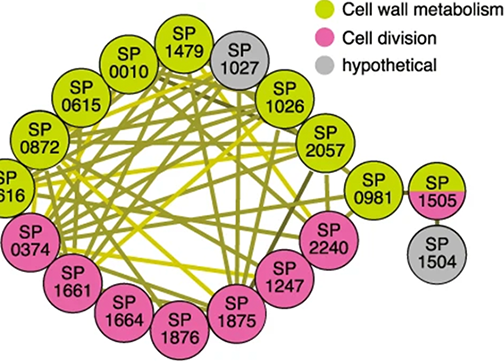A genome-wide atlas of antibiotic susceptibility targets and pathways to tolerance
Dmitry Leshchiner, Federico Rosconi, Bharathi Sundaresh, Emily Rudmann, Luisa Maria Nieto Ramirez, Andrew T. Nishimoto, Stephen J. Wood, Bimal Jana, Noemí Buján, Kaicheng Li, Jianmin Gao, Matthew Frank, Stephanie M. Reeve, Richard E. Lee, Charles O. Rock, Jason W. Rosch & Tim van Opijnen
Nat Commun. 2022 Jun 7;13(1):3165.
PMID: 35672367 | PMCID: PMC917425 | DOI: 10.1038/s41467-022-30967-4
Abstract
Detailed knowledge on how bacteria evade antibiotics and eventually develop resistance could open avenues for novel therapeutics and diagnostics. It is thereby key to develop a comprehensive genome-wide understanding of how bacteria process antibiotic stress, and how modulation of the involved processes affects their ability to overcome said stress. Here we undertake a comprehensive genetic analysis of how the human pathogen Streptococcus pneumoniae responds to 20 antibiotics. We build a genome-wide atlas of drug susceptibility determinants and generated a genetic interaction network that connects cellular processes and genes of unknown function, which we show can be used as therapeutic targets. Pathway analysis reveals a genome-wide atlas of cellular processes that can make a bacterium less susceptible, and often tolerant, in an antibiotic specific manner. Importantly, modulation of these processes confers fitness benefits during active infections under antibiotic selection. Moreover, screening of sequenced clinical isolates demonstrates that mutations in genes that decrease antibiotic sensitivity and increase tolerance readily evolve and are frequently associated with resistant strains, indicating such mutations could be harbingers for the emergence of antibiotic resistance.
Source: https://pubmed.ncbi.nlm.nih.gov/35672367/#affiliation-5





